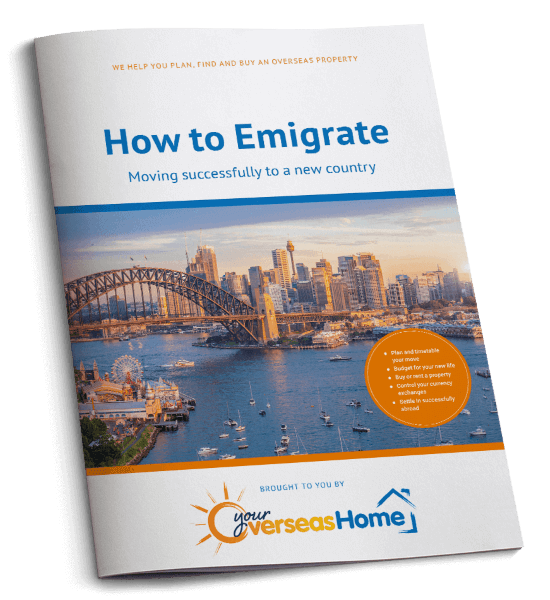So you’ve made the move, bought the house and settled in. But unless you’re already retired (or bought a business) the next question is what to do and how to go about earning a living in rural France.
Moving your entire life to France is a mission in itself – prior to the move you’ve done so much research on buying property, different areas and your administrative obligations when here. But once you’ve settled, bought the house and got it to your standards had you thought about how you will you support your new life style long term and embark on the heady task of earning a living in rural France?
For those who have retired or who have bought property which provides rental income or holiday let opportunity, that’s one thing, but what about if you’re not yet of retirement age or just need an additional income stream?
It’s important to remember that for non-EU citizens planning to come to France to work, there may be extra requirements and you may need a visa. Read the French government’s guidance on working in France as a third country national and how to get a visa.
Employed or self-employed?
Employed opportunities for earning a living in rural France can be few and far between, especially if you don’t yet speak the language to a high standard. Whilst opportunities for paid employment within companies do exist, not being based within a big town is limiting and do bear in mind that competition is fierce already amongst the French quite aside from the language barrier. It is for this reason that many expats arriving in France choose instead to start their own businesses.
For a smooth move to France, you need to make sure that your budget is protected to reduce risk from exchange rate flux. Find out how in our partner Smart Currency Exchange’s guide, The Property Buyer’s Guide to Currency.

Follow my top tips to setting up your business in France.
There is a wealth of people providing gardening services, property management and house and pet sitting so do conduct your research within your particular area before you put all your hopes on one of these types of work. If a market is already saturated, no matter how good you are, at the beginning you will find it hard to find open opportunities.
Becoming an auto-entrepreneur in France though does allow you to be your own boss, set your own hours, and work as much or as little as you wish but of course be warned it also does mean managing your own workload and internal administration, including all of the French administration involved in running your own business which can be daunting. It does also, however, mean you can choose your clients (at least once you are established) so if you prefer to only work in English then you can, although you will find most of your clients will then be English too.
One advantage of our times though is the digital revolution. Because of this you may well be able to find remote working opportunities for roles within your field. But be warned, regardless where your clients may originate from, any work you do or income you receive whilst based in France, is liable to be taxed in France subject to French law.
Think about your skills
The first thing to do is brace yourself for the task ahead. Don’t let anyone tell you that it is easy, but why would anyone think it would be? Then, take a deep breath and think about your natural skills – and by that I don’t just mean what you have previously done as a job in the UK – I mean your transferable natural skills. What are you good at, or enjoy? Is now the opportunity to explore that business idea you’ve always longed for or show off that talent that you’ve always kept under a bushel?

Could moving to France be the moment to realise your dream of being your own boss?
To give you an example, I arrived in France following a career as an Operations Manager/Operations Consultant in the UK. Having previously worked for myself I was at least well equipped for networking, running my own business, doing my own administration and knew how to market myself. However I also knew that the opportunity within the same kind of role in order to start earning a living in rural France was unlikely as I was not looking to commute daily to my nearest big town and there are simply no large businesses in my immediate surrounding area. Because of this, my starting point was to look at my skillset – organisation, process, business improvement, sales, analysis coupled with the fact that I speak fairly good French.
Over the course of time, this has led me to various opportunities – from helping people who arrive here set up their administrative life, to translating correspondence, acting as an intermediary with projects or issues where the other party is French and writing these articles. I am also lucky enough to be able to provide remote working support to some UK based companies helping them with their social media strategies and other project based endeavours.
Think about a point of differentiation of your business. If people are doing what you do all around you, what makes you different and why would people come to you rather than someone else?
Secondly, research what people are looking for paid help with within your area – the needs/requirements of the target market. Also think about a point of differentiation of your business which at least in the early days is really important. If people are doing what you do all around you, what makes you different at first and why would people come to you rather than someone else providing similar services?
Do you have any natural creative talents? I know of people who have set up businesses here doing pottery, sculpting, creating garden ornaments made of wire, candle making, artisan soaps and bath products and so on, all of whom are very successful. France is a great showground for artisanal type works and the year round markets and Christmas markets are a great place to showcase these creative efforts as well as of course selling through online shops.
Be adaptable and flexible
Starting out can I admit be a bit trial and error, and do you know what, it’s all about learning as you go. Keep your ear to the ground and listen to what everyone says about things they find problematic to deal with themselves or what they potentially could need help with. Be prepared that if your original idea doesn’t work (no matter how brilliant you thought it may have been) you are prepared to flex and adapt either with a different strategy or maybe to another idea entirely.
You may find that through the natural course of things you end up earning your living in rural France doing something entirely different to the idea you started with or what you imagined. But then that’s the beauty of life’s adventure here. Having a slightly more relaxed attitude, make the most of your new found consciousness when you speak to people, you will find conversations naturally present expanding networks and ideas. And also be prepared that you may not earn enough income through only one strand of business and you may need to provide a few different services in order to create the income level that you need.
Make sure you’re prepared for a viewing trip with the tips and tricks from our Viewing Trip guide.
Never say no – at least when first starting out

Word of mouth is extremely important to building your business in a rural area.
In the beginning of trying to establish your way of earning a living in France, the biggest tip I can give you is never say no to anything! Whether it’s a social event or an opportunity to make money or help someone out, no matter how much you’re not feeling it, don’t say no. You just never know when that contact who asked you to help them speak to the tax office, or manage a project in their absence whilst they are away could lead to a something else.
It’s also fair to say that whilst marketing and social media certainly rules the world or at least the UK, here it’s word of mouth that is the best method to earning a living in rural France. It’s true that working life at first here may be slightly sporadic but once you’re established you can pick and choose (or at least that’s the aim) what you want to concentrate on doing or specialise in. Work that will sustain supporting you for the long term can take a while to build up but one day like me, you may be lucky enough to have to start turning things down as working more than you actually want defeats the object of having moved here in the first place! A much better problem to have than worrying where your next euro is coming from.
If you are ready to buy in France within the next few months, call our helpful France Resource Team on 020 7898 0549 or email [email protected].
Be your own biggest cheerleader and network
In self-promotion or branding in any country the most important thing is to be your own biggest fan. Never expect anything to drop into your lap – the most important tool you have is yourself. The harder you work and try to find opportunities, make contacts and promote who you are and what you do, the more (in the end) it will help you in your quest of earning a living a rural France. Over the last 18 months of developing my business I’ve done everything from putting posters and flyers up in local shops and businesses (be aware that this must contain details of your company registration if you are to do this), to walking into shops with my CV, to speaking to anyone and anyone about anything, to having meetings with companies that nearly 18 months later have turned into great opportunities. And in the last 6 months I have doubled my monthly income.
At the end of the day, it’s all about hard work and playing the long game. Most importantly, once you have those coveted customers (even if it appears initially they only need a one off job) treat them well, appreciate them and ensure you retain their trust and confidence. Not only will they come back to you if ever they need something else, this is the golden path to referrals and believe me it works.
Be aware that flyers and posters must contain details of your company registration.
And on a final note, if anyone is thinking about coming to my particular area of Charente, and is a taxi driver, an English speaking beautician or an English speaking farrier, you needn’t worry. You’ll be just fine – we are crying out for all of those!

The Emigration Guide has been put together by overseas property experts and expats who understand the process of emigrating inside out, having emigrated themselves or helped others to do so. The guide will help you to:









